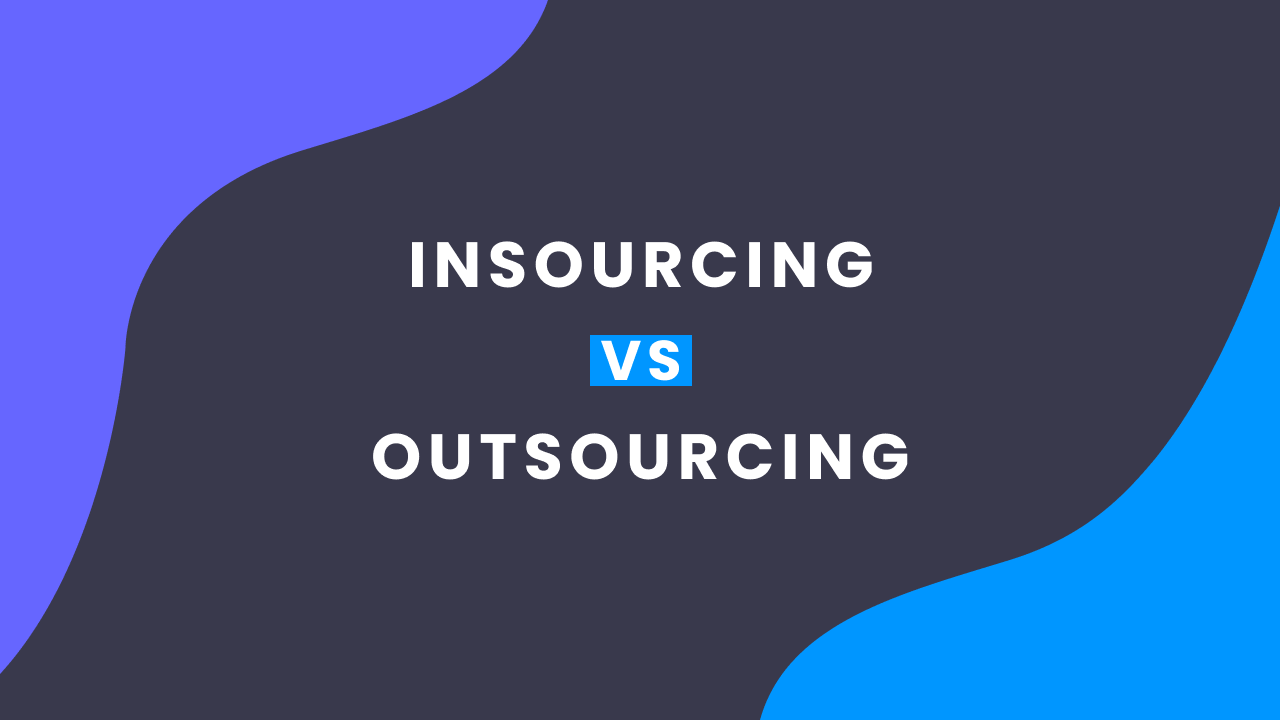Business
Insourcing vs Outsourcing: Which Is The Right Choice For Your Business?

Insourcing vs Outsourcing: Are you considering insourcing or outsourcing for your business operations? As a business owner, it’s important to evaluate the benefits and drawbacks of each option before making a decision.
In this article, we’ll explore insourcing vs outsourcing and help you determine which is the right choice for your business.
Introduction
Insourcing and outsourcing are two business strategies that companies use to manage their operations.
Insourcing refers to the practice of keeping operations in-house, while outsourcing means hiring external companies to handle some or all of your business processes.
Each approach has its own benefits and challenges, and the decision to insource or outsource can depend on a variety of factors.
Insourcing vs Outsourcing

Insourcing and outsourcing have distinct advantages and disadvantages that businesses should consider.
Insourcing
Insourcing is the process of keeping all of your business processes in-house. This can involve hiring staff, purchasing equipment, and managing operations within the company.
Advantages
- Control: Insourcing gives you greater control over your business operations, as you are able to oversee everything that happens within the company.
- Customization: Insourcing allows you to customize your operations to fit your business needs, rather than having to rely on external providers.
- Quality Control: Insourcing allows you to maintain greater quality control over your operations, as you can monitor everything that happens in-house.
Disadvantages
- Cost: Insourcing can be more expensive than outsourcing, as you need to invest in equipment, staff, and training to handle all aspects of your operations.
- Limited Expertise: Insourcing may limit your access to specialized expertise that external providers can offer.
- Risk: Insourcing can be risky, as you are responsible for all aspects of your operations and any mistakes or mishaps can have a significant impact on your business.
Outsourcing
Outsourcing is the process of hiring external companies to handle some or all of your business operations. This can include anything from customer service to manufacturing and logistics.
Advantages
- Cost: Outsourcing can be more cost-effective than insourcing, as you do not need to invest in equipment, staff, and training to handle all aspects of your operations.
- Specialized Expertise: Outsourcing allows you to access specialized expertise that you may not have in-house, such as IT or marketing.
- Flexibility: Outsourcing allows you to scale your operations up or down as needed, without having to invest in additional resources.
Disadvantages
- Control: Outsourcing can limit your control over your business operations, as you may not have as much oversight over external providers.
- Communication: Outsourcing can lead to communication issues if there is a language or cultural barrier between your company and external providers.
- Quality Control: Outsourcing can result in lower quality control, as you are relying on external providers to handle aspects of your operations.
Insourcing vs Outsourcing: Factors to Consider

The decision to insource or outsource can depend on a variety of factors, including the nature of your business, your financial situation, and your long-term goals.
- Nature of Business: Some industries may be better suited for insourcing, while others may benefit from outsourcing certain processes. For example, a manufacturing company may benefit from insourcing its production line, while outsourcing its IT support.
- Financial Situation: Your financial situation may also impact your decision. If you have limited resources, outsourcing may be a more cost-effective option.
- Long-Term Goals: Your long-term goals may also influence your decision. If you are looking to expand your operations, outsourcing may provide greater flexibility and scalability.
Conclusion
The decision to insource or outsource is complex and depends on various factors.
While insourcing provides greater control and customization over business operations, it can be more expensive and risky.
Outsourcing, on the other hand, can be more cost-effective and provide access to specialized expertise, but may limit control and quality control.
Ultimately, businesses should carefully evaluate their options and conduct a cost-benefit analysis to determine which strategy is right for them.
Insourcing vs outsourcing is an important decision for any business, and it’s crucial to understand the benefits and drawbacks of each option before making a choice.
By considering the nature of your business, your financial situation, and your long-term goals, you can make an informed decision that will help you achieve your objectives and stay competitive in today’s business environment.
RELATED CTN NEWS:
Insourcing For Businesses: Pros, Cons, And Implementation Tips
IT Outsourcing Services: How It Can Benefit Your Business?
20 Highest Paying Jobs For Teens: Earn Money While Building Skills





























